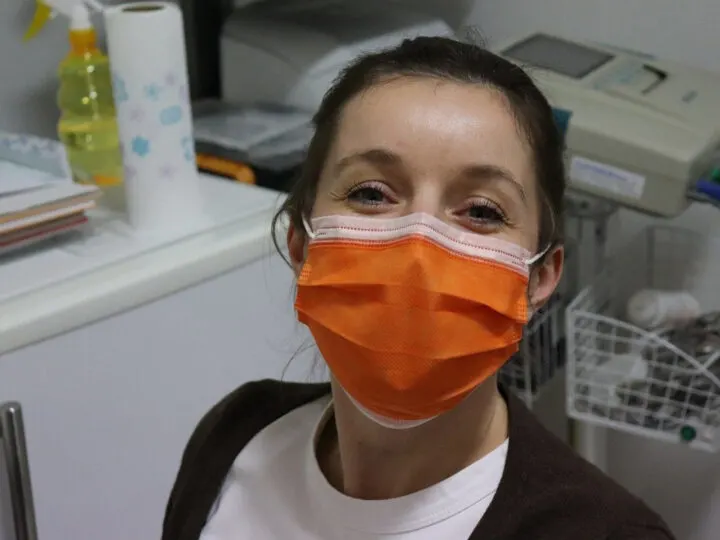This post may contain affiliate links. I only recommend products I use and love. Read the full disclosure here
Last Updated on February 24, 2025 by Alaina
There is no denying that physicians and doctors are responsible for diagnosing and making the best treatment decisions for their patients. However, they can only spend a limited time with the patients, even in critical care units. Whereas nurses comparatively spend more time with patients. Therefore, they can monitor any change in a patient’s condition and communicate it to other healthcare staff timely. As a result, it gives all the more reasons for nurses to prioritize and promote a culture of patient safety in the healthcare environment.
Simply put, patient safety is a concept that involves saving patients from any harm or injury and reducing the chances of medical errors. So, whether you are working for one of the top travel nursing agencies or working at a set position, keep in mind the following ways you can help enhance and ensure patient safety.

1. Learn from past mistakes
Let’s face it; you can’t mitigate the chances of medical errors, especially when you’re uncertain of the cause behind those mistakes. For example, picture this; a patient needs to have surgical treatment on their left arm. However, the nurse displayed an act of negligence by taking a specimen of the right arm. As a result, the physician conducted the operation on the right arm instead of the left.
These types of accidents can cause severe consequences in any medical professional’s life. Therefore, debriefing and learning from past mistakes is the best way to avoid such incidents in the future.
Furthermore, to ensure patient safety, nurses can consider advanced degree programs. In today’s tech-savvy world, nurses can choose from several DNP programs online that enable them to broaden their knowledge spectrum and become industry leaders in healthcare practices.
The best part about online programs is nurses can continue their education with a flexible schedule. That way, nurses can get in-depth knowledge and refine valuable skills that can help them prevent future mistakes and deal with situations better.
2. Employ the latest technology to monitor patients
There are many instances where patients’ condition either deteriorates or changes in a flash. Since physicians can’t be present at all times with the patients, the healthcare facility counts on nurses to identify such changes. In addition, when nurses continuously monitor the patients’ conditions, it allows them to learn the changes timely and prevent any future complications.
However, with each patient requiring different medications and care, nurses can utilize technology to track their condition more effectively. This ensures that the right care is provided at the right time. Common examples of technology used in healthcare include laser temperature checks, bedside alarms, medicine barcodes, and a virtual medical assistant.
A virtual medical assistant can help with tasks such as scheduling appointments, documenting patient symptoms, and providing real-time updates on a patient’s condition. By reducing administrative burdens, these tools allow healthcare professionals to focus more on direct patient care.
These AI-powered tools can analyze patient data, send alerts about critical changes, and assist healthcare providers in making informed decisions, ultimately improving patient outcomes and addressing staffing challenges in healthcare.
3. Take help from support staff
The life of nurses, without a doubt, is hectic and overwhelming. As a result, there are times when they feel overburdened with the tasks. However, Unlicensed Assistive Personnel (UAP) can lend a helping hand in such situations. For example, hospital staff, including nursing assistants, patient care techs, and other technicians, can monitor the patient’s vitals or ambulate patients. Because of this, nurses can focus on other essential matters related to patient’s health.
For instance, nurses no longer have to feel concerned about collecting a specimen for various testing purposes. Or worry whether the patient has received a sponge down or not. Instead, they can enhance patient care and safety by assessing medication response and looking for warning signs.
4. Educate patients about their treatment
The primary responsibility of caregivers is to ensure patient safety and provide the best quality care. However, patients themselves should act responsibly and comply with the medical treatment plan. Failure to comply with the treatment plan and incorrect use of medicines can pose severe risks to patients’ health. Especially older people and the ones with chronic illness are more susceptible to these risks.
However, this doesn’t imply that patients should have the accurate understanding and in-depth knowledge as healthcare workers. Still, they should have sufficient knowledge about the treatment and its associated risks. For this reason, nurses should train and educate patients on how to take their prescribed medications on time and refill them. Not only this, but they should also answer all patients’ queries regarding treatment and advocate their concerns to the healthcare practitioners.
5. Educate patients about discharge
It is true that during the hospital stay, nurses are responsible for patients adhering to the treatment plans and can also answer the patients’ queries. However, what about after the patient is discharged? The incorrect following of the recovery procedure can slow down the patient’s recovery. Therefore, nurses must play their part to ensure patients are following the instructions properly to avoid readmissions.
For this reason, they must coordinate with other healthcare professionals and devise a proper detailed discharge plan. Ensure the discharge plan must be easy to understand for the patients and their caretakers to avoid errors. The discharge plan can include the schedule for medicines, dates for subsequent appointments, emergency contact numbers, etc.
Conclusion
Medical errors are nothing new in the healthcare industry. However, patient safety is not something that nurses and other health professionals should take lightly. Therefore, each healthcare professional must promote patient safety in a healthcare facility for better outcomes.
It is to note that there is no magic to lessen medical errors and save the patients. Yet, nurses can play a significant role in improving and promoting the patient safety culture by employing evidence-based safety protocols.
